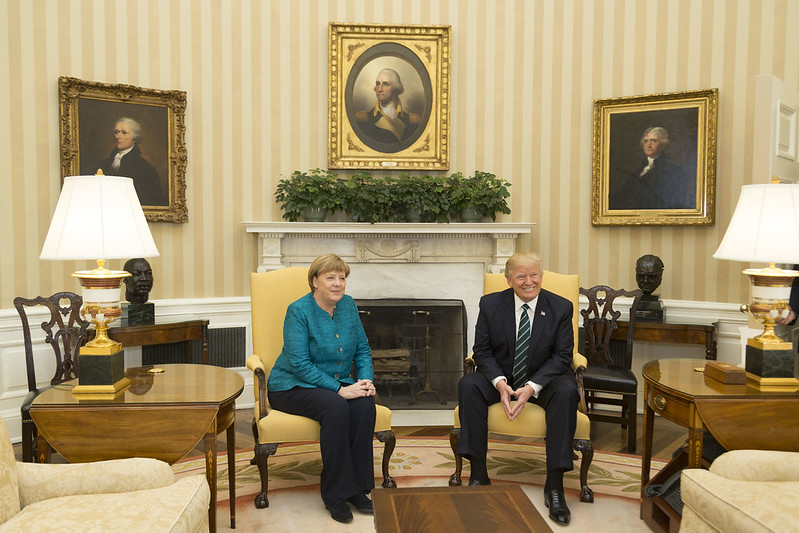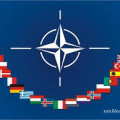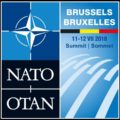German-U.S. relations have reached their lowest point since East and West Germany were united. Issues including Berlin’s inadequate contribution to NATO, its Middle Eastern policies, and its growing energy dependence on Russia are the key concerns.
NATO

American Military News recently reported that German Chancellor Angela Merkel has reneged on Berlin’s promise to live up to its NATO obligation to commit 2% of its GDP on defense. U.S. Ambassador Richard Grenell tweeted that “It is offensive to assume that the U.S. taxpayers will continue to pay for more than 50,000 Americans [U.S. troops] in #Germany, but the Germans get to spend their surplus on #domestic programs.”
DW, a German news source, reports that “US defense expenditure represents 72 percent of defense spending across the trans-Atlantic alliance.”
Merkel’s course reversal resulted in significant controversy. Christian Whiton, a former State Department senior advisor, told The Jerusalem Post that “Merkel’s posture is a joke and shows that the German government has no intention of doing its fair share for common defense. We ought to move our forces out of Germany and focus on collaboration with Poland the Baltics.” He added, “Even if Germany were to spend the minimum 2 percent of GDP it promised on defense, which seems unlikely, there’s the question of what they would do with it. After all, they have opposed the US on Iran nuclear sanctions, and seem totally unwilling to help protect shipping in the Persian Gulf.”
Dietmar Bartsch, the chairman of the Left Party faction in the German Bundestag, has suggested that if the U.S. does transfer troops to Eastern Europe, it should also remove its nuclear weapons from German soil.
The Financial Times explains that “Germany’s low defence spending weakens NATO party politics and a pacifist culture make it hard to raise expenditure… Even if German defence spending is a bit higher than planned, it will remain the weakest military power among Europe’s largest countries despite having the strongest economy.” The strength of Germany’s economy, the fourth largest in the world, makes its subpar defense spending more inflammatory.
Middle East
The Gatestone Institute has thoroughly reviewed Berlin’s anti-Israel, pro-Iran tilt. Its’ examination indicates that “Germany continues to provide millions of euros annually to organizations that promote anti-Israel BDS (boycott, divestment and sanctions) and “lawfare” campaigns, anti-Zionism, antisemitism, and violence… In May 2016, Germany approved an especially disgraceful UN resolution that singled out Israel at the annual assembly of the World Health Organization (WHO) as the world’s only violator of “mental, physical and environmental health… German President Frank-Walter Steinmeier has cozied up to the Iranian regime and other enemies of Israel. Germany consistently appears to prioritize its relations with Israel’s enemies… Instex, an initiative of German Foreign Minister Heiko Maas, would enable European trade with Iran despite U.S. sanctions… A senior German diplomat appointed to head an EU barter system that would enable European companies to sidestep U.S. sanctions on Iran stepped down after giving an interview in which he criticized the existence of Israel and praised Tehran’s ballistic missile program… much of Germany’s political establishment appears to be fundamentally anti-Israel. In March 2019, for instance, Germany’s Bundestag overwhelmingly rejected a resolution by the Free Democratic Party (FDP) to urge Chancellor Angela Merkel’s government to reverse its anti-Israel voting record at the United Nations… In February 2019, German President Frank-Walter Steinmeier congratulated, “also in the name of my compatriots,” the Iranian regime on the 40th anniversary of the Islamic Revolution that seeks Israel’s destruction.”
Energy
The Clean Energy Wire reports that “Germany is the biggest buyer of Russian gas.” A Forbes study noted that Russia’s natural gas exports to Germany increased significantly in 2018, and that dependence is expected to continue to rise. Angela Merkel has vowed to phase out both coal and nuclear power, which will render her nation increasingly reliant on Russian energy. Forbes believes that “Germany may not be ‘controlled’ by a dependency on Russian gas at the moment, but if the disappearing coal and nuclear energy is replaced by Russian gas, it would quickly be in a situation where it is. And that has many in the West very concerned.”
Relations Remain Vital
German-American relations remain vital for both nations. However, Berlin needs to contribute its fair share and to cease engaging in efforts that weaken the Western alliance.
Frank Vernuccio serves as editor-in-chief of the New York Analysis of Policy & Government.
















Follow Us